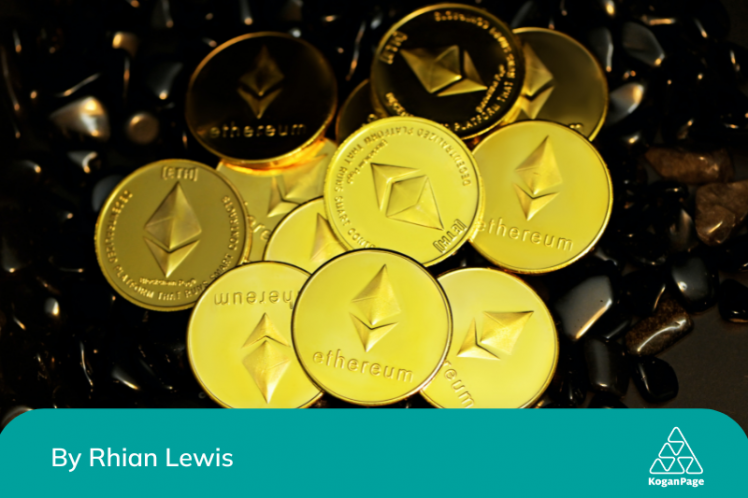Investing in Cryptocurrencies During a Financial Crisis

At a time when people are understandably worried about being able to pay their mortgages and their bills, let alone meet the rising cost of food in the supermarket, it might seem a strange time to bring cryptocurrencies into the discussion.
In many countries in the world - but particularly the UK - conversations about hikes in interest rates set against a background of high energy bills have been dominating the media.
Given that interest rates have been so low for so long, the prospect of higher rates on savings accounts will bring relief for savers. However, for those who have more of an appetite for risk, there are opportunities within the decentralized finance (DeFi) sector to achieve even higher yields through staking and lending your cryptocurrency.
In the last few years, the crypto headlines have been dominated by rags to riches stories about early Bitcoin or Ethereum adopters who made millions of dollars through being in the right place at the right time. As late as last year, there were tales of thirty-somethings who were able to retire in luxury after buying meme coins such as Shiba Inu and watching the price go up thousands of times.
The last year’s bear market, which has seen Bitcoin’s price topple from $67,000 to under $20,000, has thankfully put paid to these headlines. As the economy heads downwards, risk assets such as cryptocurrencies have fallen, along with tech stocks, as investors head for safer territory.
Yet this does not mean that owning some cryptocurrency as part of a balanced portfolio is out of the question. Let’s look at three main areas where this could make sense in these current economically troubled times: first, as an inflation hedge; second, raising yield via stablecoins; and third, using a gamified savings app.
Cryptocurrency as an inflation hedge
Bitcoin and other cryptocurrencies are a risk asset and it goes without saying that no one should put any money into them that they are not prepared to lose. Their volatility can make it difficult to predict what their price will be when you want to convert them back into a currency such as pounds or dollars.
In many countries, particularly in Europe, we are used to low and predictable inflation. The hyperinflation that gripped Germany in the 1930s is a distant memory. But for many places in the world, this is not guaranteed. If you live in Venezuela, with an eye-watering inflation rate of more than 1000 per cent, or Turkey with a rate of 78 per cent, with consequent falls in value against other currencies, the volatility of cryptocurrencies may well be a lesser evil than the volatility of your own national currency.
In a high-inflation environment, storing money in cryptocurrency this week may well mean you have more to spend on groceries next week. This is an extremely risky strategy and is not really recommended - although one interesting fact emerged in the last few days of September, following British Chancellor Kwasi Kwarteng’s ‘mini budget’. The price of Bitcoin fell against the dollar but rose against the pound. So if you have money to gamble with in a high-stress environment where the pound sterling is falling, perhaps putting some of it into cryptocurrency is not as silly as it first seems.
Raising yield via stablecoins
It is totally understandable that people may not want to put their hard-earned money into an asset whose value - in the words of every investment warning - may go down as well as up. Those who bought Bitcoin at its peak have lost more than two-thirds of their investment and some buyers of some of the more obscure crypto tokens have lost every single penny that they put in.
However, there are ways of taking advantage of the lower fees and higher yields offered by decentralized finance without tying your fortunes to the price of Bitcoin, Ethereum or any other crypto token.
Stablecoins are an innovation in the cryptocurrency world that aim to retain the almost-instant settlement and global advantages of digital currencies without the risk of price fluctuations. These are tokens whose value is tied to that of an underlying fiat currency like the US dollar, on a one-to-one basis.
Dollars are the most popular “peg” currency for stablecoins, but stablecoins exist in many different denominations, including pounds and euros. If you are based in the UK, you may wish to place your wealth in a pound-denominated stablecoin, but it is more likely that, given the rising US dollar, you would wish to choose a dollar stablecoin such as DAI or USDC.
Once you have bought your stablecoins, it is possible to send them to a smart contract on a platform such as Aave or Compound, where they are lent out to other users as part of a collateralized loan, and in return you receive a yield. Yield is compounded weekly, which pushes up returns compared with interest that is paid monthly or yearly.
Risks potential investors should consider include the possibility of software failure and hacks, as their deposits are not guaranteed under UK or EU banking legislation. However, for the adventurous, this could be an interesting way to offset rising costs brought on by the cost of living crisis.
Gamified savings apps
When times are tough and household budgets stretched, some people are unable to save anything. However, for those who are in a position to keep putting some money away, sometimes a little help is needed to start and maintain good habits.
Turning saving into a game - either alone or with other people - is a good way to build your savings discipline. This is where crypto-based apps such as PoolTogether or GoodGhosting can help.
PoolTogether works on a similar principle to Premium Bonds in that you deposit funds - in this case, cryptocurrency - and have the chance to win a share of up to $30,000 in weekly prizes. Unlike the National Lottery, you retain your stake if you don’t win anything and can keep increasing your pool.
GoodGhosting is another app built around the concept of shared savings pools, where you combine your savings with those of others to get a higher reward. Unlike PoolTogether, the interest is shared between savers rather than offered as a prize - but receiving it is dependent on hitting certain goals along the way.
Please be aware that neither Rhian Lewis nor Kogan Page is offering financial advice. Cryptocurrencies are notoriously volatile, and there are no guarantee schemes should the platform you are using fail. None of the apps or tokens mentioned in this article is being recommended specifically by the author.




